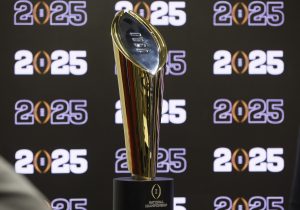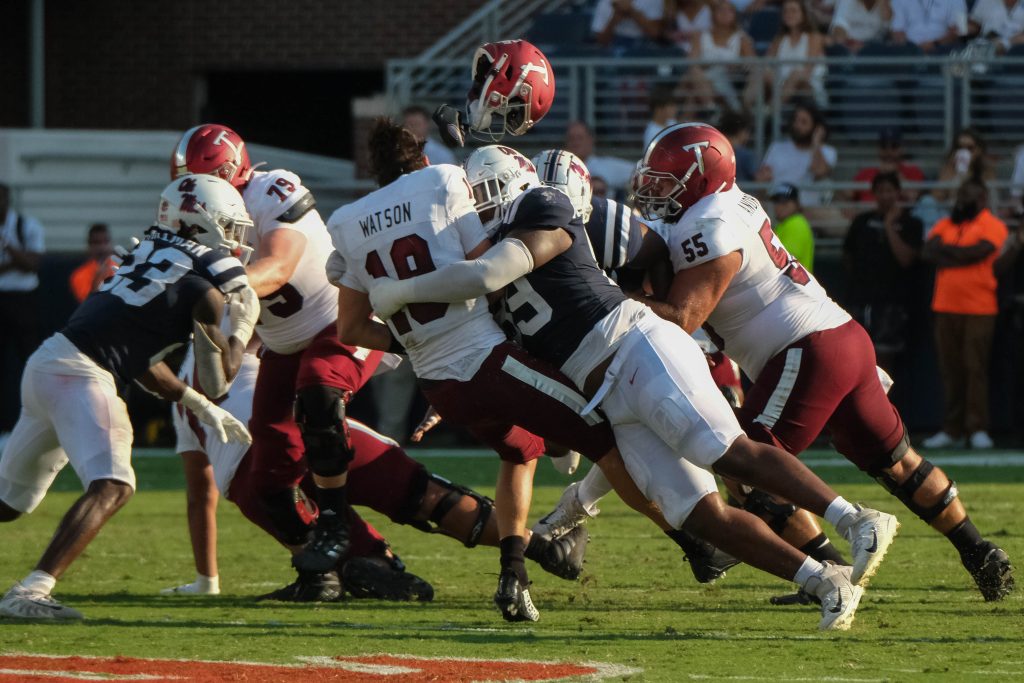The College Football Playoff Committee voted Friday afternoon to expand the playoff format from the four team bracket of previous seasons (dating back to 2014) to a new, 12 team structure. How this affects the landscape of college football remains to be seen, but its impact is undeniably massive.

Since 2014, the College Football Playoff bracket has consisted of four teams, each chosen by a 13-member panel every season and billed as the very best that the gridiron has to offer. Inevitably, the selection committee has had to make decisions that have rung ludicrous to some, unpopular to many, and, in the opinion of any team not in the Big 10 or SEC, completely unfair.
Some cases have been more widely covered than others, but the most famous example occurred in 2017 when the University of Central Florida Golden Knights boasted the lone undefeated season in the Football Bowl Subdivision and were slighted by the committee when they were left out of the big dance, showing bias towards Power Five teams.
Nearly every team and fanbase have begged for expansion since the inception of the playoff, but it’s still questionable whether or not an expanded bracket is good for anyone.
The answer is undeniably murky and certainly depends on who you ask. To Ole Miss fans, an expanded playoff will guarantee playoff chances for the Rebels. Had this format been implemented from the beginning, Ole Miss would have joined the dance in 2014 and 2021, with potential upsets over Michigan State and Oklahoma State (although both victories would have led to the Crimson Tide, where the Rebels have been historically unlucky).
Rebel fans everywhere, at this point, are naturally excited about the prospect of upsetting a team and making their first serious run at a title since 1960, but in order for that to happen, upsets must occur.
Unfortunately for the Oxford faithful, upsets are not an integral part of college football, at least not in the playoffs. In basketball, March Madness is defined by upsets, Cinderella teams and enticing storylines. In the NFL, parity reigns supreme thanks to coaching innovations, giving way to the “any given Sunday” mindset that’s so common in fans.
The best example of college football’s lack of playoff parity can be seen in Oklahoma’s sorry 0-4 record since 2014. They have not upset a No. 1 seed in any of the three occasions in which they were ranked No. 4. This is not to say that it is impossible for a three or four seed to win in the current system, but only three of the eight champions so far have been ranked lower than No. 2, and that trend does not look to change.
A playoff expansion will pit the No. 1 seed against the No. 12 seed, and although the analogy is hardly perfect, an Oregon team ranked No. 11 lost to a Georgia squad ranked No. 3 on Saturday, with a score of 49-3, which gives us a glimpse into the reality of the future. More games do not equate to more upsets, nor do they necessarily mean a more equitable system.
A wider playoff field can also mean a less competitive playoff race, allowing Alabama and Georgia to drop a Saturday or two without worry. Nick Saban, head coach of the Crimson Tide, may elect to bench his starters when a playoff berth is inevitable, rather than risk them for the team.
An expanded playoff may be good for college football someday, but until higher parity is achieved, a wider playoff hurts teams like Ole Miss and Iowa and helps Georgia and Clemson.















